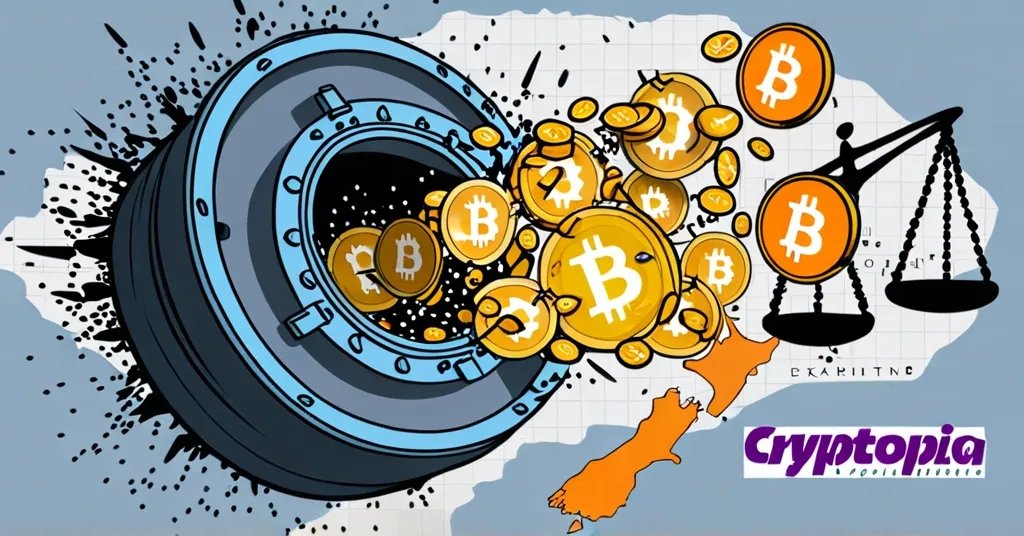Cryptopia Hack Victims Finally Compensated: $225M Distributed After Four-Year Battle

Cryptopia Hack Victims Receive Long-Awaited Cryptocurrency Compensation
After a long four-year wait, victims of the infamous Cryptopia hack are finally seeing some restitution. The New Zealand-based crypto exchange, which suffered a devastating breach in January 2019, is distributing over $225 million in cryptocurrency to more than 10,000 verified account holders. This major step forward comes after a pivotal court ruling in 2020 that classified digital assets as property during liquidations.
- Over $225 million in cryptocurrency distributed to Cryptopia users.
- Exchange hacked in January 2019, leading to its collapse in May the same year.
- More than 10,000 Bitcoin and Dogecoin account holders have received distributions.
- A 2020 court ruling treated digital assets as property.
- A significant milestone in the intricate liquidation process.
Cryptopia’s downfall serves as a harsh reminder of the security vulnerabilities that can plague crypto exchanges. The hack, one of the largest at that time, led to millions of dollars in stolen digital assets, culminating in the exchange’s collapse. By May 2019, Grant Thornton, an accounting firm, was appointed as the liquidator to manage the aftermath.
Background on Cryptopia: Cryptopia was a cryptocurrency exchange based in New Zealand, known for hosting a wide variety of digital assets. In January 2019, the platform was hacked, resulting in a substantial loss of funds and leading to its eventual closure. This case highlights the precarious nature of cryptocurrency exchanges and the importance of robust security practices.
In a significant update, the liquidators announced, “The liquidators of Cryptopia are pleased to announce a significant milestone in the ongoing liquidation process. Over the past two days, more than 10,000 verified account holders of Bitcoin and Dogecoin have received their first cryptocurrency distributions.” This progress offers relief to those who were left in uncertainty for years.
The landmark court ruling in 2020 was instrumental in this process. It affirmed that digital assets should be treated as property during liquidation proceedings, establishing a precedent for future cases. This decision paved the way for the current distribution and may serve as a reference point in future crypto asset recovery efforts.
David Ruscoe, one of the liquidators from Grant Thornton, emphasized the importance of resolving this matter efficiently. “We realize Cryptopia’s customers will want to have this matter resolved as soon as possible. We will conduct a thorough investigation, working with several different stakeholders including management and shareholders, to find the solution that is in the best interests of customers and stakeholders.” This commitment, despite the protracted process, underscores the complexities involved in crypto liquidations.
What Does This Mean for the Crypto Industry?
The case of Cryptopia underscores the critical need for robust security measures within the cryptocurrency space. The distribution of recovered funds is a significant step forward, but it also serves as a stark reminder of the ongoing threats in the digital asset world. As the industry evolves, ensuring the security of digital assets remains paramount for exchanges and users alike.
Moreover, the legal designation of digital assets as property could have far-reaching implications for future liquidation processes. By treating cryptocurrencies as property, courts may offer a clearer framework for asset recovery, potentially speeding up future proceedings and providing more certainty for affected investors.
Key Takeaways:
- What proactive measures can crypto exchanges implement to better safeguard user assets?
- How might the legal treatment of digital assets as property affect future liquidation scenarios?
- What crucial lessons can be drawn from the extended Cryptopia liquidation for managing potential future incidents?
The Cryptopia case is a stark reminder that while the potential for cryptocurrency and blockchain technology is vast, the industry must continually strive to strengthen security and legal frameworks to protect users and sustain trust. For further discussions, some users have shared their experiences on platforms such as Reddit.



